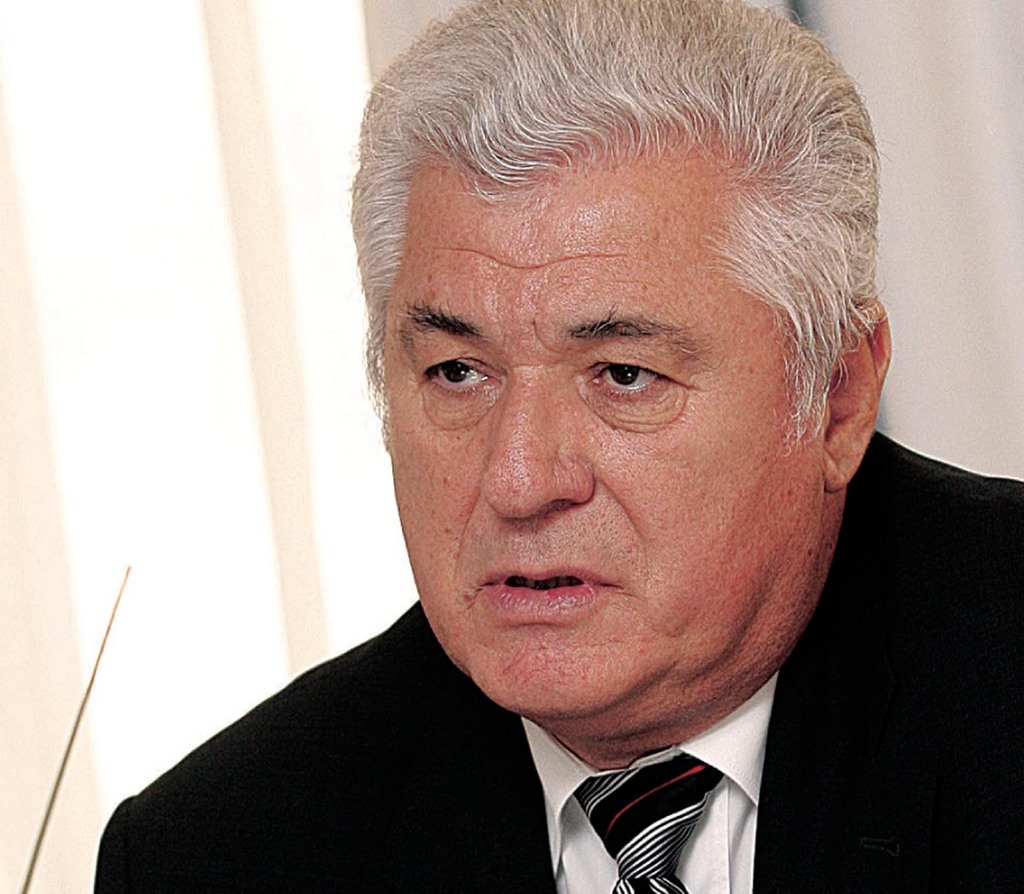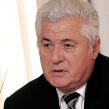
Russia Emerging as a Factor in Moldova’s Internal Politics
Publication: Eurasia Daily Monitor Volume: 6 Issue: 203
By:

From October 30 to November 1 the Moldovan parliamentary majority’s candidate for head of state, Western-oriented Marian Lupu, as well as the communist opposition leader, and former head of state (2001-2009) Vladimir Voronin, undertook parallel visits to Moscow upon invitations there. Such a turn of events is unprecedented in Moldova since 1991. Russia is now bidding to become a power broker in Moldova’s internal politics.
Moldova’s state presidency remains technically vacant since April. The four-party Alliance for European Integration (AEI) managed to form a government in September, but its narrow edge in parliament –52 AEI versus 49 communist seats– is a recipe for continued polarization and confrontation. The AEI lacks the minimum necessary of 61 sixty-one votes for electing the head of state in parliament. Certain AEI government leaders tacitly favor yet another parliamentary election for next year, expecting to win heavily and to remove the clean candidate, Lupu, from the presidential contest. Meanwhile, the communists are holding out for the hardest possible bargain with the AEI and are blocking the election of the head of state in parliament, threatening thereby to force new elections.
Lupu’s and Voronin’s Moscow visits were directly initiated by the Kremlin and proceeded separately from each other; at least there is no indication that they crossed paths there. While Voronin’s visit remains shrouded in obscurity for the moment, Russian authorities ensured low-key but respectful media treatment of Lupu’s visit; and Lupu himself gave an account of his Moscow talks for Moldovan media.
Russian presidential administration head Sergei Naryshkin and the Duma’s international affairs committee chairman Konstantin Kosachev held meetings with Lupu. He is the first Moldovan AEI leader to have been invited by Russian officials to Moscow after Moldova’s elections. The public signals from these talks confirm almost explicitly that Russian authorities favor Lupu’s election as president. Kosachev expressed confidence in Lupu’s willingness to develop Moldova-Russia relations. Kosachev also proposed that an inter-party agreement be signed between United Russia and Lupu’s Moldovan Democratic Party before the end of this year –a signal that Moscow has all but identified this group as a partner of choice in Moldova (Interfax, October 31, November 1; Kommersant, November 2).
According to Lupu’s account of his talks, Moscow is interested in stabilizing the situation in Moldova, with a view to building economic cooperation and political dialogue with the country. Lupu regards Moscow’s interest defined in that way as “correct, not as interference in Moldovan internal affairs.” He would “categorically oppose any pressure [and] would not want others to regard us as infantile.” Lupu is open to continuing his and the AEI’s dialogue with the Moldovan communists with a view to resolving the political crisis, electing him as head of state, and avoiding yet another parliamentary election. He observes that all Moldova’s partners, not only Russia, want a stable and predictable situation in the country (Moldpres, www.jurnal.md, November 2).
Naryshkin received Voronin in the Kremlin for an all-but-secret visit. According to Kremlin sources, Voronin was told that his political potential as a party and state leader is practically exhausted. In Naryshkin’s office, Voronin was offered “certain ideas [skhemy] for further cooperation” (Kommersant, November 2). Apparently, Moscow is promising the communists a minor role in Moldova’s new political configuration, if the party goes along constructively with the change of power and does not scuttle the existing parliament.
Such is Moscow’s clear signal to the Moldovan communists. Within the Communist Party, a group has emerged in recent weeks favoring limited cooperation with the AEI. This group is prepared to settle for the role of a responsible opposition in the existing parliament. Led by the influential political operator Vladimir Turcan (who is not a party member technically) and estimated to include 15 parliamentary deputies, this group could provide more than the eight additional votes needed for electing in parliament the AEI candidate Lupu as head of state. Turcan has all along hinted, and is now claiming outright, to be acting in tune with Moscow’s wishes (www.jurnal.md, November 2).
However, Voronin and his top adviser Mark Tkachuk (now a highly influential parliamentarian) prefer brinkmanship as tactics and indeed strategy, threatening new elections. While in power, Voronin and particularly Tkachuk often proved recalcitrant toward Moscow, which reciprocated by distrusting Voronin and detesting Tkachuk. Consistent in his attitude, Tkachuk all but rejects Moscow’s unilateral intervention in Moldova’s internal crisis: “We maintain a dialogue not only with Moscow but also with the diplomatic missions in Chisinau. We see no reasons to elect Lupu as president. New elections are the best option,” Tkachuk declared, after Moscow had urged Voronin to help elect Lupu as president and avoid new parliamentary elections (www.jurnal.md, November 3).
Moldovan Prime Minister Vlad Filat seems to reluctantly go along with this turn of events. Filat supports Lupu’s presidential candidacy officially but half-heartedly. Filat objects to his rival Lupu’s Moscow visit: “I dislike this attempt to resolve the issue of [electing] the head of state in a place other than Chisinau” (www.jurnal.md, Moldova Suverana, November 3).




